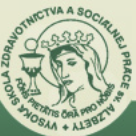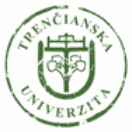Detailed introduction of Slovak University of Agriculture in Nitra:
Introduction
Slovak University of Agriculture in Nitra is a public university located in Nitra, Slovakia. It has a high level of teaching and research in agriculture and related fields and is one of the top universities in Slovakia.
Overview
Student size: about 4,500 students.
Faculty: has a group of professional professors and researchers to provide students with high-quality education and guidance.
History and establishment time
The school was established in 1952.
School strength
Teaching: provides undergraduate, master and doctoral education, covering multiple professional fields such as agricultural biology, food science, agricultural engineering, economic management, etc. Focusing on practical teaching, students have the opportunity to go to the school's farms, botanical gardens and other places for practical training, combining theoretical knowledge with practical application.
Scientific research: The school has strong scientific research strength and has undertaken many international and domestic scientific research projects, such as animal welfare research, global food and nutrition security and other topics. Its project team consists of scientists and researchers from different colleges, with extensive expertise in the fields of sustainable use of food resources, biodiversity conservation, etc.
International Exchange: Actively participate in international cooperation, is part of many study abroad programs, such as Erasmus+, Jean Monnet, etc., and has established partnerships with many universities around the world to promote exchanges between teachers and students. The ECTS learning credit education system has also been introduced, which has increased the university's attractiveness to international cooperation and the transparency of education.
Institutional nature
Public university.
Educational philosophy
Committed to cultivating professionals with innovative spirit, practical ability and social responsibility, emphasizing close ties with local and regional society, focusing on applying teaching and scientific research results to practice, promoting economic development and social progress, and aiming to become a world leader in research and teaching that is widely recognized at the regional, national and international levels, and actively seeking cooperation opportunities with other higher education institutions and business partners.
Key laboratories and disciplines
Key disciplines: Agricultural biology, biotechnology, food science, agricultural engineering, horticulture and landscape engineering, economic management and other disciplines are the school's advantageous disciplines, and the teaching and research level is in a leading position in Slovakia.
Laboratory situation: The school has a number of professional laboratories and research centers, such as agricultural biotechnology laboratories, food quality testing laboratories, agricultural engineering experimental centers, etc., which provide good conditions for teachers and students to carry out scientific research and support cutting-edge research and technological innovation in related disciplines.
Department Settings
The school has 6 colleges, including the College of Agricultural Biology and Food Resources, the College of Biotechnology and Food Sciences, the College of Economics and Management, the College of Agricultural Engineering, the College of European Studies and Regional Development, and the College of Horticulture and Landscape Engineering.
Ranking
In the 2023 THE World University Rankings, it is ranked 1201-1500.
In the 2022 QS Emerging Europe and Central Asia Rankings, it ranks 159th.
In the 2024 QS Forestry Rankings, the school ranks 201st.
Expenses
The tuition fees of public universities in Slovakia are relatively low. The undergraduate tuition fees of the school are about 2000-5000 euros/year, the master's tuition fees are about 3000-6000 euros/year, and the doctoral tuition fees are about 4000-8000 euros/year.
Campus
Campus facilities: The campus has modern teaching buildings, libraries, laboratories and other teaching facilities to meet the learning needs of students. The school's library has a rich collection of professional books and academic journals in multiple disciplines such as agriculture, biology, and economics. In addition, there is a 28-hectare botanical garden that collects many tropical, subtropical and temperate plants, providing students with a place for practice and research. The school's sports center has a multi-functional gymnasium, a 25-meter indoor swimming pool, an aerobic studio, a fitness center, tennis courts and beach volleyball courts, etc., and encourages students to participate in various sports activities.
Campus life: The school focuses on the comprehensive quality training of students and has carried out a variety of campus cultural activities and club activities, such as academic lectures, cultural and art exhibitions, sports competitions, etc., which enrich students' extracurricular life.
-

St. Elizabeth College of Health and Social Work
-

University of St. Cyril and Methodius in Trnava
-

Technical University of Kosice
-

Matej Bel University in Banská Bystrica
-

Slovak University of Agriculture in Nitra
-

Comenius University in Bratislava
-

Pavol Josef Safarik University
-

Slovak University of Technology in Bratislava
-

Alexander Dubcek University, Trencin
-

University of Žilina
-

Mesoamerican University
-

Istmo University
-

Mariano Galvez University of Guatemala
-

Regional University of Guatemala
-

Galileo University
-

Francisco Marroquín University
-

Rafael Landívar University
-

University of the Valley of Guatemala
-

University of San Carlos of Guatemala
-

Technological Institute of Tlaxcala Plateau
-

Golfo University
-

Technological University of South Sonora
-

Technological University of Huejotzingo
-

Tizimín Institute of Technology
-

Chilpancingo Institute of Technology
